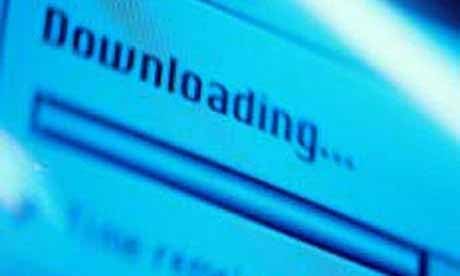Ofcom's draft code to cut down on illicit filesharing is flawed and should be torn up and redrafted, according to the Open Rights Group (ORG), an advocacy organisation pushing for more freedom on the internet.
The ORG said that the draft code "misses vital requirements to outline the standards of evidence" in determining whether to take action against alleged filesharers – and that this means it fails to comply with the Digital Economy Act, passed at the tail end of the Labour administration, which puts an onus on Ofcom to reduce the amount of illicit filesharing in the UK.
That would mean that people might receive court summons based on evidence subpoenaed from internet service providers in which the standards of evidence of identity and action would not meet those for other offences. A persistent criticism of plans to allow copyright holders to bring people to court over allegations of illicit filesharing is the problem of creating a "chain of evidence" linking them to the offence. In the US, the music industry has been embarrassed in a number of cases where it has sued grandmothers and children, accusing them of filesharing. In the UK, lawyers acting for the Ministry of Sound have recently been sending out letters demanding payment for alleged online piracy – to the puzzlement and anger of a substantial number of recipients
Ofcom's consultation closes on Friday 30 July.
The draft "initial obligations code" governs the way that copyright owners send accusations of copyright infringement to internet users under the Digital Economy Act. In some cases, this will lead to individuals being taken to court – although the act itself is hazy about the details, for which the responsibility has been pushed onto Ofcom and to some extent the secretary of state for trade and industry – presently, Vince Cable.
Jim Killock, the executive director of the Open Rights Group, said: "Ofcom's proposal denies us the ability to check whether any of the evidence is trustworthy. Instead, copyright holders and internet service providers will just self-certify that everything's OK. If they get it wrong, there's no penalty."
Killock notes that the draft initial obligations code does not specify how evidence of infringement of copyright should be obtained, and does not make provisions specifying the standard of evidence that must be included.
Section 3.5 to 3.7 of the draft initial obligations code outlines, in relation to evidence gathering, what it calls a "quality assurance process", but this process does not specify the means of obtaining evidence or the standard of evidence included, only that the copyright owner will have to follow the process outline in their quality assurance report which is to be submitted to Ofcom. The DEA does not require such a quality assurance system.
"The act requires the evidential standards to be defined," Killock said. "But Ofcom has passed the buck. How is anyone meant to trust this code if we can't see how the evidence is gathered or checked? Only this week, people have been apparently wrongly sent accusations of downloading tracks by the Ministry of Sound. We know things go wrong, and that's why the act requires the evidential standards to be set out."
He concluded: "What we need now is a new consultation on a new code, that is compliant with the act."

Comments (…)
Sign in or create your Guardian account to join the discussion